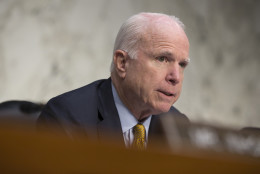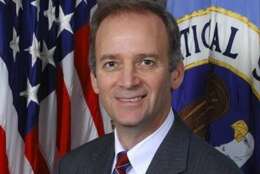National Security Agency
-
Lightning has struck twice in the same spot now — NSA and Booz Allen Hamilton.
October 06, 2016 -
Nearly one year after Congress passed the Cybersecurity Information Sharing Act, agencies say they're still looking for more buy-in from from more private sector companies to share and receive cyber threat indicator information with them. Meanwhile, the Justice Department, FBI and Homeland Security Department are trying to perfect their own information sharing practices as an incentive for companies to partner with them.
September 27, 2016 -
The chairman of the Senate Armed Services Committee said Tuesday that he would block any effort by the Obama Administration to bifurcate the leadership of the National Security Agency and U.S. Cyber Command, saying the move would be premature and lacked any input from Congress.
September 14, 2016 -
The intelligence community is building its cloud system around the concept of integration in order to facilitate better data sharing and standardized security.
August 25, 2016 -
The National Security Agency's approach to 21st century threats comes with six new directives and a new look for part of its two-pronged mission.
August 16, 2016 -
The General Services Administration released per diem fiscal 2017 travel rates for federal employees.
August 12, 2016 -
The Defense Department is tightening up its standards for using data on U.S. citizens.
August 01, 2016 -
While millions of kids spend their summer camp time paddling in canoes and roasting marshmallows, one select group is spending it in a different way. They're sitting in front of workstations, learning the ins and outs of cybersecurity. The GenCyber summer camp program is backed by the National Science Foundation and the National Security Agency. For more on its goals and how it works, Steve LaFountain, dean of the College of Cyber at the NSA, joins the Federal Drive with Tom Temin.
July 28, 2016 -
NSA Director of Information Assurance Curtis Dukes thinks identity theft was the reason for the OPM hacks. But regardless of their purpose, he says the breaches highlight a need for both industry and agencies to get up to speed to defend against smarter and more sophisticated enemies.
June 30, 2016 -
The National Security Agency is the repository for much of the government's cybersecurity chops. NSA has its own cyber threats to worry about. But it also advises other agencies and the White House on governmentwide and industry cyber issues. Federal Drive with Tom Temin talks to the point man for this effort, Philip Quade, special assistant for cybersecurity to the NSA director.
June 27, 2016 -
Agency IT leaders bemoan restrictions with policy and the rapid speed of the Internet of Things environment as major barriers to deploying new commercial IoT devices in the field.
May 17, 2016 -
The Homeland Security Department's National Cybersecurity and Communications Integration Center analyzes information to help give other federal, state and local officials a clearer picture of real and potential threats.
May 17, 2016 -
When the Defense Department announced its plan to upgrade most of its computers to Windows 10 by 2017, the Marine Corps, characteristically, said it would go first. But the smallest of the Defense services has run into problems.
May 12, 2016 -
Corin Stone, NSA's executive director, talks to Woman of Washington’hosts Aileen Black and Gigi Schumm.
April 29, 2016 -
Current and former intelligence community officials say they're not getting the buy-in they need from their top leadership — or the guidance they need to use begin using social media — in their insider threat and security clearance programs.
April 28, 2016















